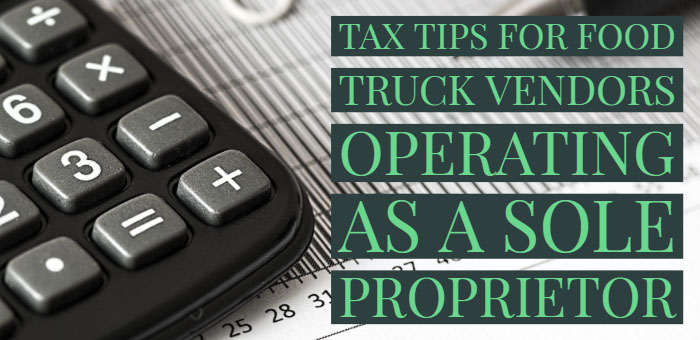As a mobile food vendor, tax season can be one of the most challenging times of the year. Since you’re probably not an expert on the tax code, it can be stressful to file your taxes properly and take all the deductions available to you.
With the April 15 tax-filing deadline less than a month away, Mobile Cuisine has spoken with some accountants and tax specialists to find about some of the biggest mistakes that you can make as a food truck owner when filing taxes, what deductions shouldn’t be overlooked and how you can start preparing now for next year’s taxes.
Biggest Tax Mistake
Being a mobile food business owner is tough. There are so many demands on your time and so many hats you are required to wear. One of the biggest mistakes happens when the accounting work gets put on hold so that you can focus other aspects of your business. This includes keeping track of receipts or expenses.
Rather than storing them in a shoe box and having to sit down and record them all at once, which takes lots of time away from your mobile food business. You are better off automatically inputting and categorizing expenses into a single ledger (or preferably a tax software program) as soon as you can. This will prevent you from missing out on deductions you are owed.
Should You Do Your Taxes?
Most owners we speak with prefer to let a professional handle their taxes. They find that filing their own taxes used to give them headaches, and were always afraid of doing the forms incorrectly — to avoid these problems they let a tax professional take care of them.
This kind of help is invaluable to a food truck owner. It allows you to focus your energy on producing quality food for your customers rather than stressing out about your taxes.
Please note that if you do your taxes yourself, it’s always easiest to prepare and file your taxes when you have all of the information right in front of you. Keeping track of your income and expenses year round in an accounting software package is a great way to reduce your headaches at tax time.
Tax-code changes in 2014
We found that the biggest change for food truck owners this year is that those who maintain home offices can use a simplified option to calculate this deduction for 2013. In the past, truck owners who did all of their administrative work from home had to track utilities and expenses pertaining to specifically maintaining a home office, such as heating and rent, etc. For 2013, you will be able to take a standard deduction of $5 per square foot of home used for business (up to 300 square feet). This should simplify things and lessen the need to keep as many records inside your home.
Deductions often overlooked
Food truck owners often overlook the mileage deduction. It’s worth tracking car trips — other than the mileage you use to get back and forth to your commissary since you can deduct roughly 56 cents a mile for 2013 (5.5 cents to be exact).
Also encourage tracking educational expenses, such as books, training seminars or online courses. If these items help you hone your skills as a business owner or in your kitchen, they may be deductible.
Make Next Year’s Taxes An Easier Process
Keep track of your income and expenses in some form of accounting software. This will not only help you stay on top of your business day to day, but it will also make sure tax time is easy and painless.
Reflect on troublesome 2013 tax issues. Were you unsure of total income? Was it difficult to categorize expenses? Find out what made this year’s taxes tough to file and correct them.
Please be advised…these tips are just that. We do not claim to be tax experts and unless you have a firm grip on accounting, we suggest you reach out to a CPA to assist you and your mobile food business at tax time.




